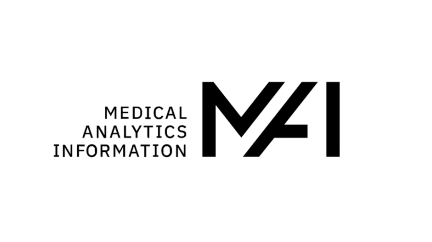Manuelle Arbeitsabläufe
automatisieren und effizienter gestalten
Dein digitaler Mitarbeiter, der Freiraum schafft
Wer kennt sie nicht, diese monotonen, zeitfressenden und repetitiven Aufgaben, die nervenaufreibend sind und keine Freude an der Arbeit bereiten. Robotic Process Automation (RPA) – zu deutsch robotergesteuerte Prozessautomatisierung – leistet Abhilfe und erleichtert den Arbeitsalltag enorm. Anders als Du es Dir wahrscheinlich vorstellst, bedeutet robotergesteuert hierbei nicht, dass es sich um einen maschinellen Roboter handelt, der vor einem Computer sitzt und arbeitet. Es geht viel mehr um Software-Roboter, die verschiedenste Geschäftsprozesse automatisch bearbeiten und ausführen.
Die sogenannten virtuellen Mitarbeiter können bereits nach einer kurzen Einarbeitungsphase täglich anfallende Routinearbeiten übernehmen und so mehr Zeit für wertschöpfende, kreative und innovative Aufgaben schaffen. Die Software-Roboter sind dabei universell einsetzbar und kommen bei Kund*innen aus verschiedensten Abteilungen und Branchen zum Einsatz.
Anwendungsbereiche im Back Office

Sales
• Schreiben von Angeboten
• Erstellen von Berichten
• Aktualisieren der Bestandsdaten

Human Resources
• Screenen von Bewerber*innen
• Onboarden von Mitarbeiter*innen
• Erstellen von Arbeitsverträgen

Finance & Accounting
• Verarbeiten von Rechnungen
• Durchführen der Buchhaltung
• Stammdatenpflege ERP Systeme

Customer Service
• Kommunizieren mit Kund*innen
• Managen von Aufträgen
• Anlegen von Terminen
Anwendungsbereiche in diversen Branchen und Industrien

Gesundheitswesen
• Übertragen von Daten
• Planen von Terminen
• Analysieren medizinischer Daten

Zahlungsdienstleister
• Anlegen von neuen Händlern
• Konfigurieren der Terminals
• Kommunizieren mit Kund*innen

Logistik & Transport
• Tracken des Sendungsstatus
• Anlegen von Sendungen
• Bearbeiten von Rechnungen

Zolldienstleister
• Anmelden von Importwaren
• Anmelden von Exportwaren
• Managen von Aufträgen
Prozessmanagement
neu gedacht
Digitale Lösungen, die Dich weiterbringen
Unsere Produkte: Intelligentes Prozessmanagement
Setze deine Produktivität auf ein neues Niveau
Mit unseren innovativen Produkten erlangst Du im Handumdrehen ein effizientes Geschäftsprozessmanagement und kannst Deine Arbeitsabläufe kontinuierlich verbessern. Unsere Kernlösung fokussiert sich konkret auf die Automatisierung und Optimierung manueller Geschäftsprozesse. Bei Robotic Process Automation (RPA) kommen Software-Roboter zum Einsatz, die zeitaufwändige Arbeitsschritte imitieren und so Mitarbeiter*innen entlasten.
Doch unser Lösungsangebot geht weit über die standardisierte Prozessautomatisierung hinaus. In Kombination mit künstlicher Intelligenz (KI) ermöglichen wir im Rahmen der intelligenten Dokumentenverarbeitung, kurz IDV, die Automatisierung von komplexen und kognitiven Arbeitsabläufen, sodass auch unstrukturierte und komplexe Dokumente verarbeitet werden können. Darüber hinaus hilft Dir unsere Data Science Lösung dabei, Prozessdaten sinnvoll zu nutzen und visuell in modernen Dashboards darzustellen.
Team auto.mates
Die Menschen hinter den Lösungen
Warum wir der richtige Ansprechpartner sind
Digitalisierung ist keine Aufgabe, die man alleine löst

Breit aufgestellte
Expertise
Bereits seit mehreren Jahren integrieren wir intelligente Automatisierungslösungen. Unser Team besteht aus Berater*innen, Entwickler*innen, kreativen Köpfen, Analytiker*innen und Strateg*innen mit einem großen Erfahrungsschatz und der Aufgabe: Dein Leben einfacher zu machen, indem wir Prozesse
optimieren und automatisieren.

Agile Startup
Kultur
Als dynamisches Startup leben wir offene Kommunikation auf Augenhöhe. Wir hören einander zu, sagen ehrlich unsere Meinung, machen dabei keine leeren Versprechungen und unterstützen uns gegenseitig. Unser Team steht für ein freundschaftliches Miteinander, hohe Motivation und große Leidenschaft für spannende RPA-Projekte.

Datenschutz hat
bei uns Priorität
Deine Daten verdienen professionellen Schutz und darum kümmern wir uns. Wir arbeiten mit zertifizierten Datenschutzbeauftragt*innen, Rechtsanwält*innen und IT-Sicherheitsexpert*innen zusammen. Darüber hinaus werden unsere Lösungen in einem ISO 27001 zertifizierten Rechenzentrum mit höchsten Sicherheitsstandards gehosted.
Unsere Partner
Intelligente Technologien für Deinen Fortschritt








Bereit für die
digitale Zukunft?
Jetzt kostenlosen & unverbindlichen Beratungstermin sichern
Wir helfen Dir gerne bei Deinen Anliegen, Fragen und Projekten. Ob eine kurze Info, Anfragen für konkrete Automatisierungen in kleinen und mittelständischen Organisationen oder in großen Enterprises, ob konstruktive Kritik oder disruptive Vision, hier bist Du richtig. Wir sollten uns kennenlernen! Vereinbare jetzt ein persönliches Gespräch und lasse Dich von einem unserer RPA-Experten beraten. Wir freuen uns auf den Austausch und beantworten gerne Deine Fragen!



